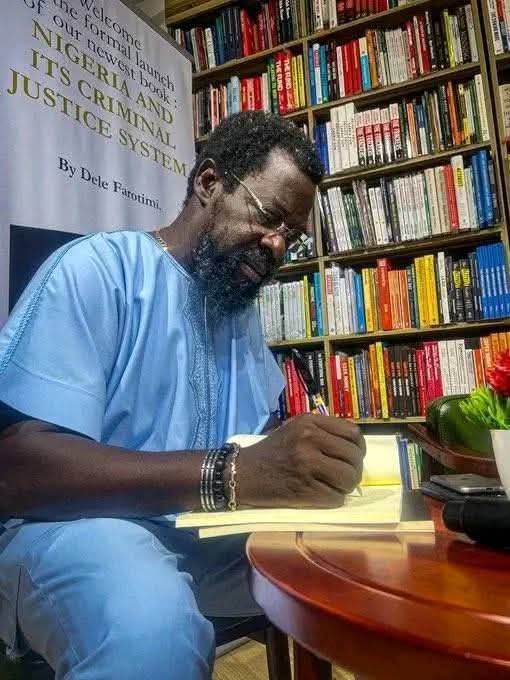
In a significant development within Nigeria’s legal and political landscape, the High Court of Ekiti State has granted activist-lawyer Dele Farotimi bail set at N50 million. This ruling comes in the wake of Farotimi’s arrest over charges that remain a subject of intense public speculation and legal scrutiny, further amplifying the already heated discourse surrounding his controversial activism and legal advocacy.
The court’s decision followed an intense legal argument between the defense team representing Farotimi and the prosecution, whose charges remain shrouded in legal ambiguities yet carry profound implications. Presiding Judge Justice Olubunmi Adeoye emphasized that the bail conditions were designed not as punitive measures but to ensure Farotimi’s availability for trial. The court also imposed surety requirements deemed appropriate under Nigerian legal standards, setting the stage for what promises to be a high-profile legal contest.
Farotimi’s legal troubles trace back to his outspoken criticism of Nigeria’s judiciary and his high-stakes legal battles involving sensitive land disputes, particularly against notable figures in the legal profession. His recent legal entanglement is viewed by many as an extension of his fearless crusade against perceived corruption within Nigeria’s judicial and political systems, a cause he has pursued with relentless determination both in courtrooms and in his writings, particularly in his incendiary book Nigeria and Its Criminal System.
Supporters of Farotimi have framed the charges as politically motivated, alleging a coordinated attempt to stifle his outspoken advocacy. Legal experts, however, remain divided on the matter, with some cautioning against reading political motives into what could be a straightforward legal process, while others argue that Farotimi’s long-standing legal battles have inevitably attracted powerful adversaries with vested interests.

Farotimi himself has remained defiant, insisting that his legal persecution is the price for speaking truth to power. His arrest has reignited public debates about the role of legal activism in Nigeria and the extent to which judicial independence can be preserved in a system often accused of operating under the influence of powerful political and economic interests.
As the case unfolds, Nigeria’s legal and political observers are bracing for a courtroom showdown that could redefine the boundaries of legal advocacy and judicial accountability in the country. Farotimi’s bail, while offering temporary reprieve, signals only the beginning of what many believe will be a fierce and precedent-setting legal contest with far-reaching consequences for Nigeria’s legal, political, and social landscape.
By : Jide Adesina

